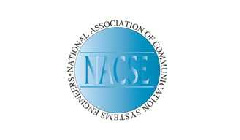Ethics Foundations for IT Professionals
When people hire engineers, all they want to know is that the job they want done will be done effectively, efficiently, and economically. And engineers themselves concur-their job is to design structures, equipment, and processes that work. Ethics is the last arena that should concern these concretely thinking, practical problem solvers, right? Actually, few claims would be farther from the truth. Because engineers design physical and intellectual structures and processes that have very serious implications for the safety and well-being of innumerable members of the public, integrity in their conduct is essential. Unwitting individuals in every corner of the world are subject to the effects of engineers' decisions and judgments, whether because they walk across a bridge, drive a car, or just breathe air or drink water. Due to the enormous impact their actions often have on others, engineers as a community of professionals are relied upon to be as ethically impeccable as doctors and other life-affecting professionals.Because of the heavy responsibility for the well being of others engineering practices often carry, ethics education has become a common element in the curriculum of engineering schools. Further, since engineering as a profession is expected to be largely self-regulating, professional organizations for engineers, such as NSPE, AICE, IEEE, ASCME, and ASCE publish and support codes of ethics. The largest of them, NSPE, which has members in every area of engineering, has a well-recognized Board of Ethical Review, which reviews alleged breeches of its codes, and offers guidelines, interpretations for applying its principles to engineering practice, and imposes sanctions for breeches of their codes. Most engineers, however, are not members of any professional society, and most are not licensed. This means that, unlike with medical doctors, the codes of ethics set out by professional engineering societies are not enforceable with respect to the majority of engineers. This is why certification of engineers by professional societies has increasingly included ethics training-at least those engineers who are "officially sanctioned" by their professional societies can be relied upon to have had training in the importance of honesty, impartiality, responsibility, and integrity as these things apply to their daily engineering practice.
Due to their increased recognition of the power that information has in the lives of individuals everywhere, employers of information systems engineers and other IT professionals have in recent years discovered that the integrity of such individuals, who often have access to delicate personal and corporate information, is enormously important. What is more, because of the central role their computers play in their operations, businesses are often completely dependent upon the advice and judgment of IT professionals. Even the question of whether a particular task can be accomplished by the consulting individual or firm, or indeed whether it is even possible, is often one that only the IT professional can answer. Thus the stakes are often as high with respect to the work of these individuals as it is with structural, civil, mechanical, or electrical engineers. Careers and private lives can be ruined, and chaos can be created within companies and even whole industries by malicious, reckless, or incompetent actions by hardware and software engineers. For these reasons and others, it has become increasingly urgent that some manner of insuring the competence and integrity of IT professionals be devised.
Currently, the National Association of Communication Systems Engineers (NACSE) is the only non-profit, vendor neutral, credential neutral professional organization for IT experts in the world. NACSE certifies its members, insuring that at least the competency standard is met, and has begun to implement ethics training as part of its certification requirements (ethics training will first be required for re-certification of members; later, it will be a requirement in the original certification process). NACSE is the industry leader in providing a clear and unbiased standard of measurement of the skills of its certified members, and will take the worldwide lead in bringing ethical competence and the standards of integrity that are the mark of excellence in other fields to the IT profession.
As with any powerful form of technology, IT stands to be either a great hindrance or a great help to safe and productive life for the public affected by its actions. Because of the enormous potential for harm this kind of engineering shares with others, self-regulation in the IT field with respect to honesty, openness, fairness, responsibility, and integrity is essential if its experts are to operate as respected and trusted professionals. With ethics training included as a requirement of professional certification, consumers of IT (which at some level includes virtually every member of our global society) will feel confident about placing their trust in those whose work can either make lives easier and more productive, or dangerous, confused, and chaotic.
Professional Services Source provides web-enabled interactive training programs for all members of NACSE in conjunction with its focus on professional ethics and integrity. Through use of our proprietary web-based self-assessment tool, The Ethical Orientation Survey,™ and our decision-making tool, The Ethical Pathway,™ participants in the course - Ethics Foundations for IT Professionals-will be engaged in articulating, building and executing personal, professional and organizational strategies for improved accountability and responsible decision-making in an increasingly complex and 'connected' world.


